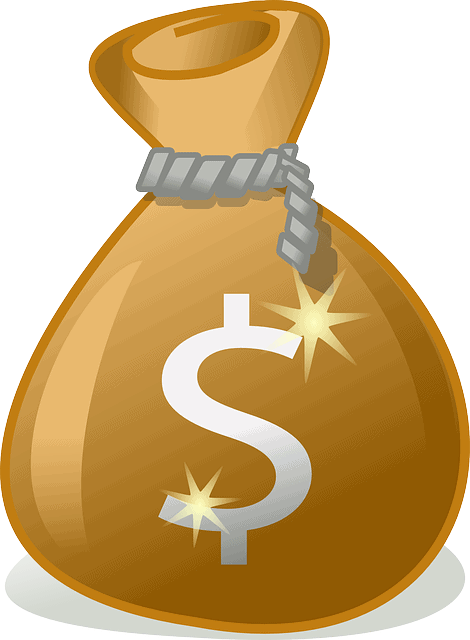In all my years of discussing personal finance, I have yet to come across a person who did not have some money issues at some point in their life; even just figuring out what to do with money when you have it is an issue of its own. Money and what we can buy with it is ultimately the reason billions of people get up in the morning to trade in their labour. Some work hourly, some work on commission, but most people are out there in the world trying to earn a living.
Interestingly enough, if you talk to most people about what would solve their money problems, they unequivocally believe it is as simple as having more money. How much? Just more. More than what they are currently receiving, more than their paycheque currently says they’re worth.
This is worth examining.
Table of Contents
Does Money Solve Money Problems?
To understand the root of this reasoning, let us take an intellectual walk down this road by assuming for a moment that money does indeed solve money problems:
In a world where earning more money solves all money problems, those who earn above average income must be doing the best, right? Further, people who earn below average income, it follows, must be doing the worst.
In practice, however, we see that people earning hefty six figure sums do oftentimes struggle with money while some living on half of that, even less than $50,000 per annum, are able to not only get by but even thrive.
What gives?
The reality is that after earning a basic level of income that provides for the necessities of life such as food, shelter, and transportation, everything else is a want. In my experience, it tends to be the wants that sink the financial houses of the majority of people.
In a world where highly paid celebrities and professionals of all varieties still manage to run into money trouble, it is safe to say that the key to financial success is not simply how much one makes.
It’s Not What You Make
Have you ever gone shopping? Have you ever made an impulse purchase? Do you often browse in stores looking for ways to exchange your hard-earned dollars for items someone else made?
The chasm between financially stable and financially crippled is a matter of financial education and self-discipline. Financial success has little to do with what you make once basic needs are met. The key is how much you keep; the amount that falls to your bottom line to be invested.
The way to think about this is in percentage terms. Consider the following straightforward example which ignores taxes and other basic considerations:
If John makes $50,000 per year and is able to live on only 90% of that (investing 10%), he is proportionally living on the same as Alex who makes $100,000 and likewise lives on 90%. John is investing $5,000 per year while Alex is investing $10,000, but they are both moving toward financial freedom at the same rate! Think about it: John will wind up with half of what Alex does assuming everything else is equal, but John also only needs $45,000 to cover all of his annual expenses while Alex needs twice that.
Taking this a step further, if John is able to ramp up his saving even just to 15%, he would be putting away $7,500 per year ($2,500 less than Alex) and moving to financial freedom faster than Alex. While John would be investing less, he also requires less to live on and thus would cross the financial freedom marker quicker.
This simplified example is intended to demonstrate that financial freedom is not defined in absolute dollar amounts. It is completely a factor of how much a person spends which directly relates to how much (or little) they are able to save.
Conclusion
The average person spends a significant amount of time thinking about how much money they make. If they applied the same vigorous approach to minimizing their expenses as they do to increasing their income, they would be better served.
All things equal, the person who spends less reaches financial freedom faster. Keep your expenses low while you scale your income higher to increase the spread between what you live on and what is left over to invest.
Thank you,
– Ryan
Do you spend as much time minimizing expenses as you do increasing income?
Pictures courtesy of pixabay.com



Hi,
The important thing is the saving rate and not the amount one earns.
One needs to save more when trying to increase the earnings. The time to reach FI will be shorter with such approach.
WTK
Hi WTK,
I absolutely agree. Regardless of one’s earnings, if the savings rate is poor, the road to financial independence will be long and arduous. It is important to learn to live on far less than one’s salary.
Thanks for stopping by,
Ryan
Hi Ryan,
I spent years working on my career to increase my salary. I more than tripled it within 8 years but with that came the stress, extra work hours, anxiety problems at some point… I was “suffering” so I had to treat myself. After all, I was working so hard that I deserved something… isn’t it true? That’s what many of us do. So I bought a house and a brand new car and I was doing two or three all inclusive trips per year in wonderful but expensive resorts… I went to the restaurant almost everyday and so on. I ended up spending more than I was earning. Until I realized it was enough. Something had to happen to change my situation and I realized too that the only person who could really change things was me… We have a lot of control over our life. So I started learning about investing the right way, about how other people were getting rich and financially independant. It’s no big secret in the end. Spend less than you earn. Invest the difference in income producing assets that will also appreciate in value with time. I started investing in dividend growth stocks in november 2013. Since then, I repaid something like 25,000$ in personal debts, 27,000$ on my mortgage and I have grown my dividend growth stocks portfolio from 0 to 37,000$ during that time frame. I had to do a lot of sacrifice. I sold a lot of things that had value to repay loans and I cut a lot of spendings in my budget. But I feel a lot happier and I feel more free than ever. The road will be long until I reach financial freedom but I can now see the light at the end of the tunnel.
Allan recently posted…TFSA contribution limit raised to 10,000$ per year! Oh yeah baby!
Hi Allan,
Your story is an inspiring one. Heavily indebted before finally realizing what really makes you happy in life and making real changes for the better.
It is a great feeling when you can actually see the light at the end of the tunnel and feel your plan is taking you down the correct path, eh?
Take care,
– Ryan